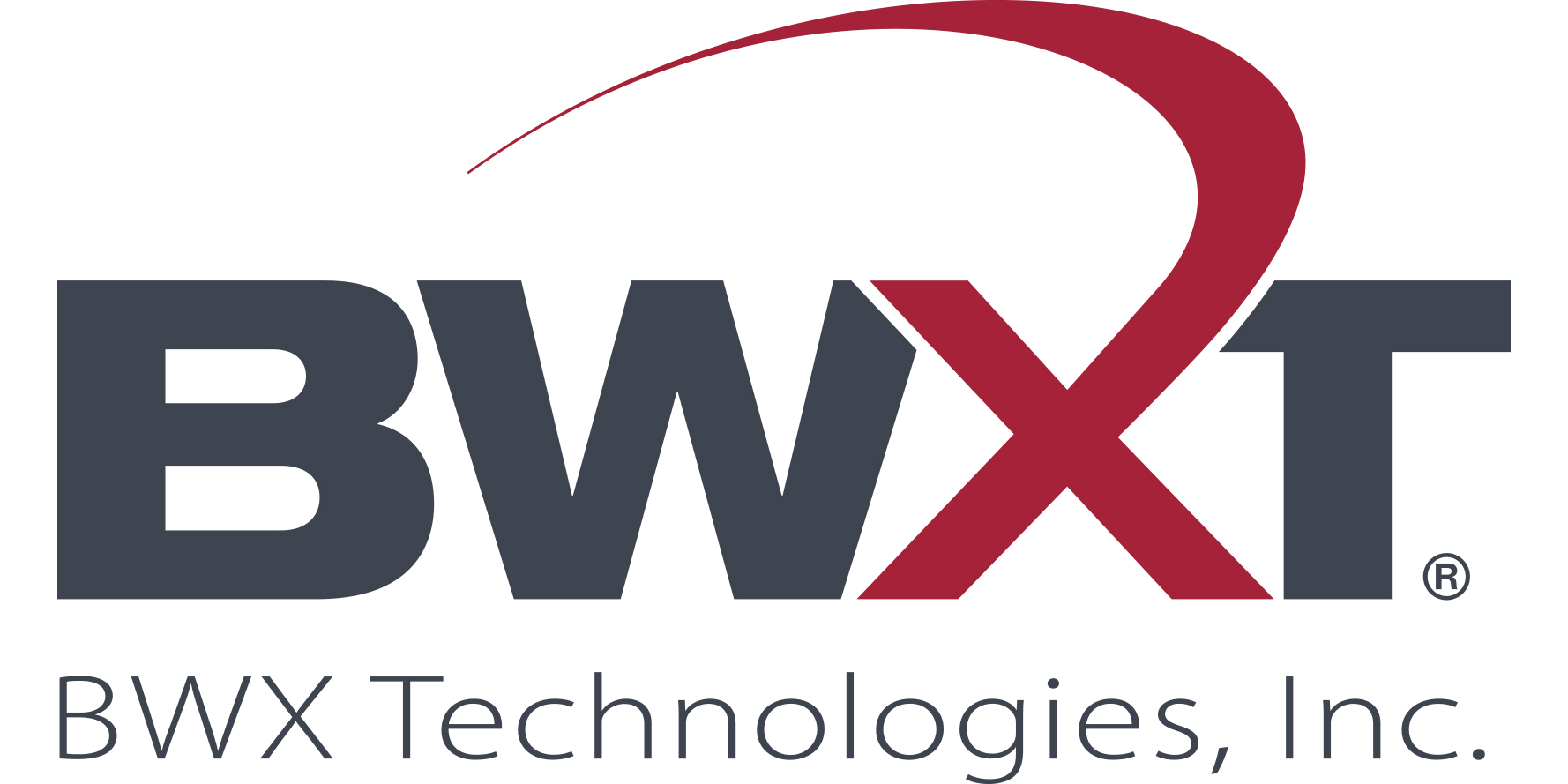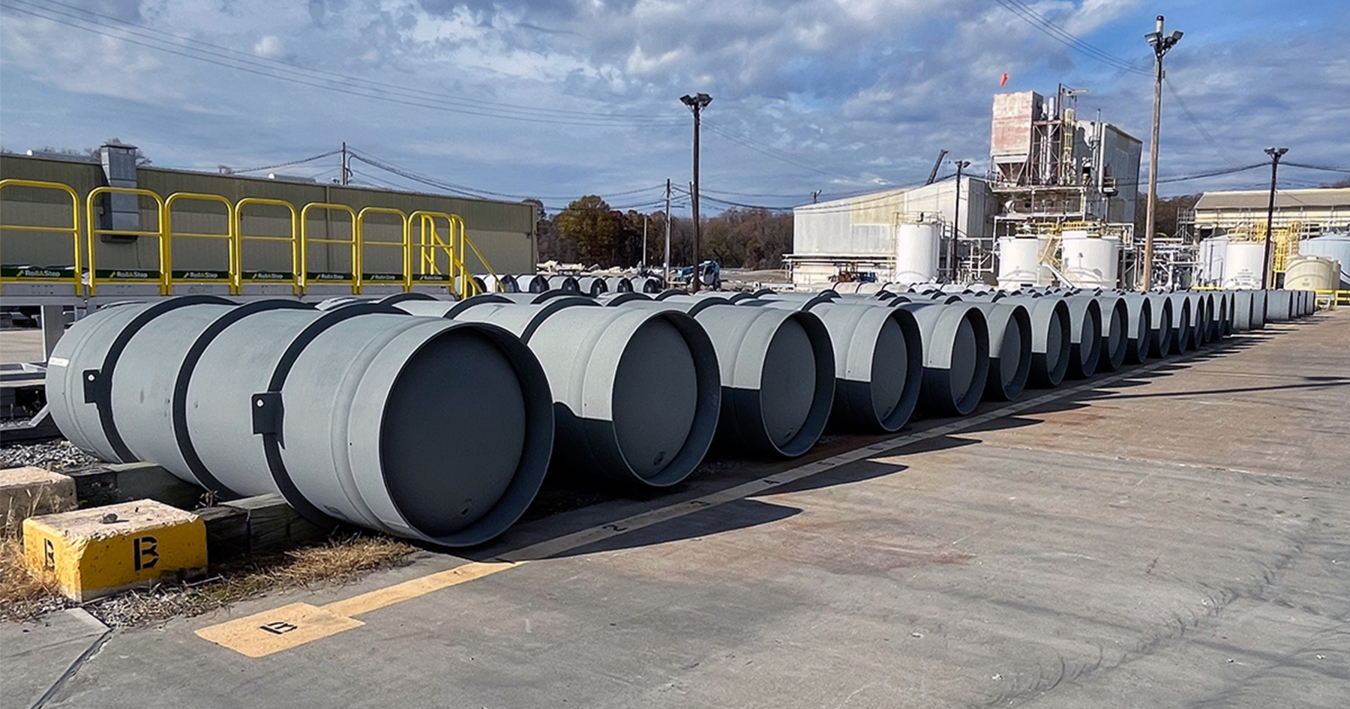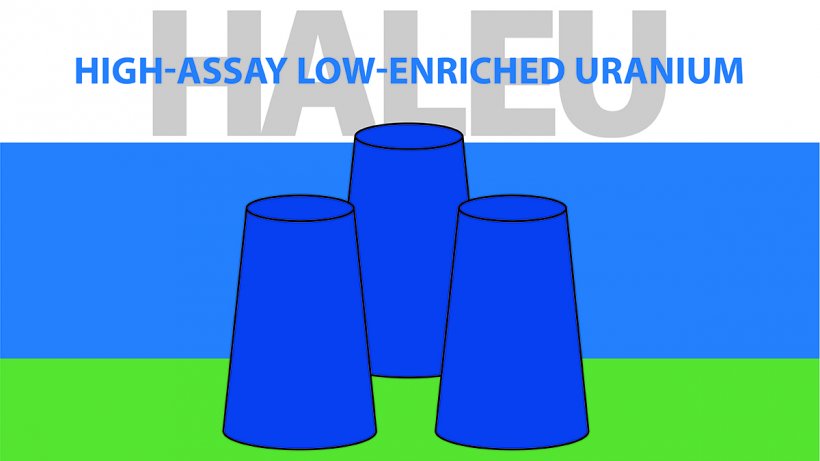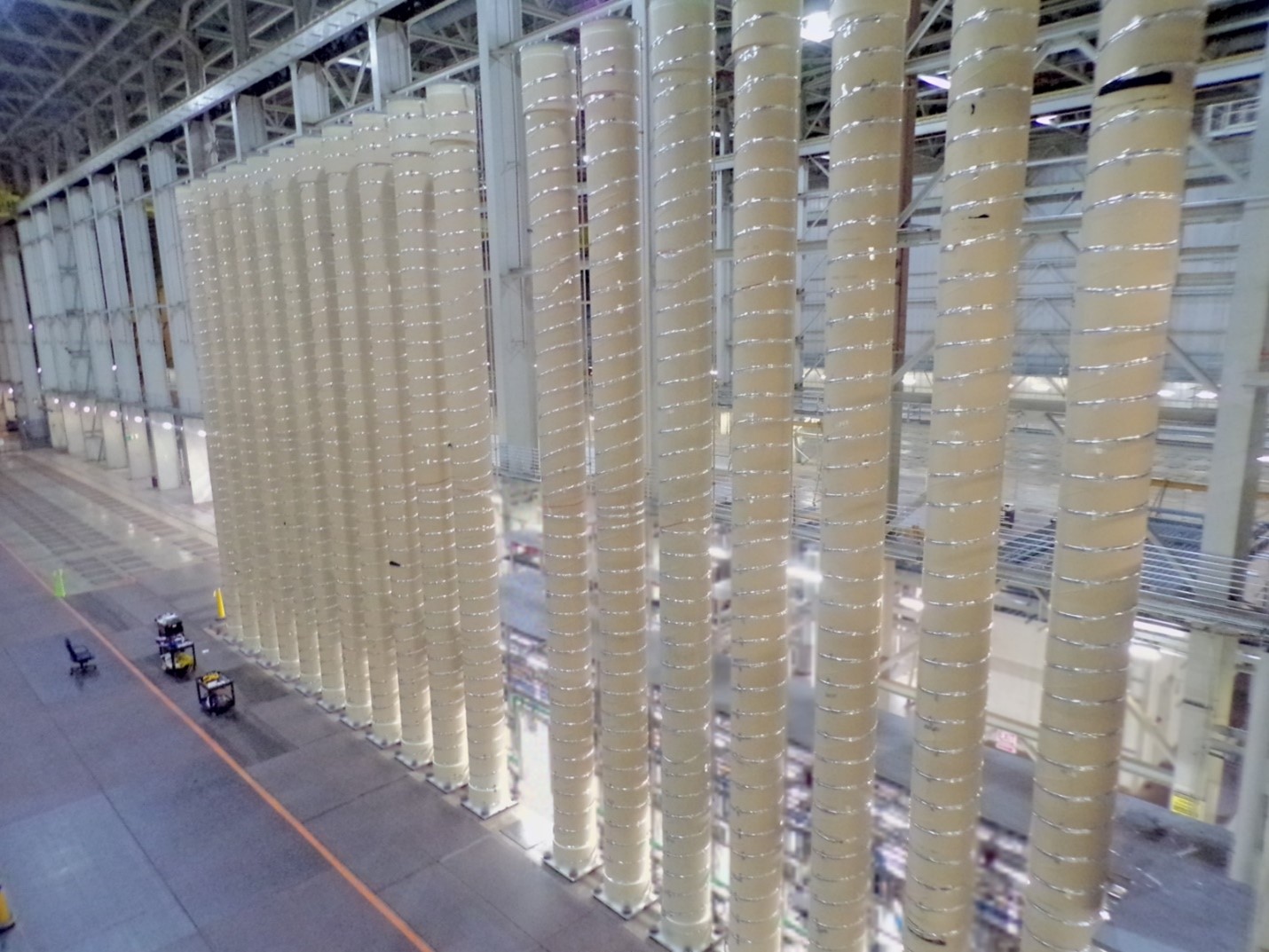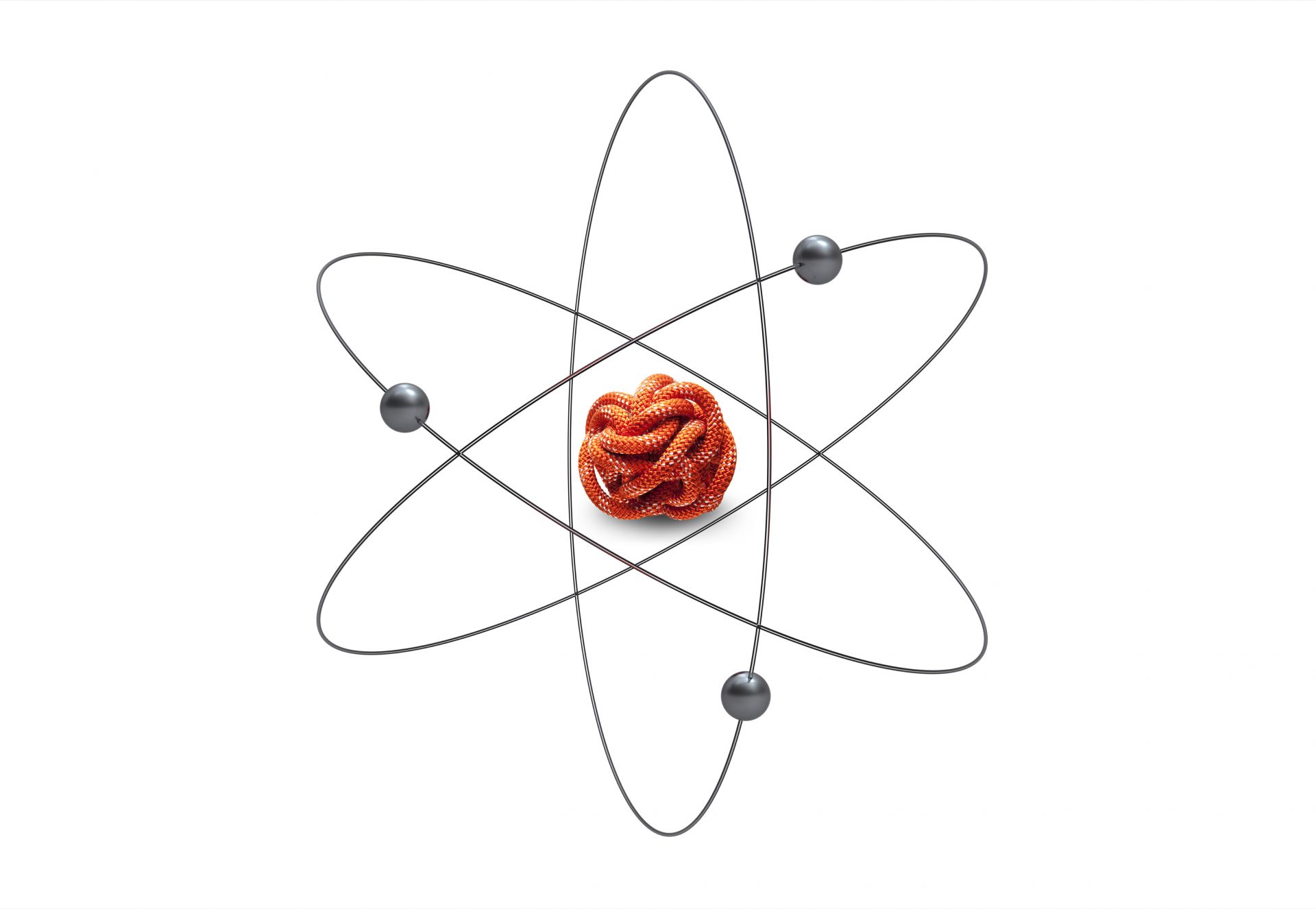Ohio Gov. Mike DeWine announced the creation of the fund at the Ohio Business Roundtable.
Ohio Gov. Mike DeWine recently announced the creation of the new JobsOhio Energy Opportunity Initiative, a $100 million fund that will be used in part to attract supply chain companies for small modular reactor manufacturing and for the creation of “nuclear energy center of excellence.”
Centrus employees maneuver a cylinder at the American Centrifuge Plant in Piketon, Ohio. (Photo: Centrus Energy)
Centrus Energy announced a plan yesterday to add 300 new jobs at Centrus’s uranium enrichment plant in Piketon, Ohio, “in advance of federal funding decisions.” The company envisions adding capacity for both low-enriched uranium and high-assay low-enriched uranium production at its American Centrifuge Plant, but the “size and scope” of public and private investment is “subject to being selected for funding by the U.S. Department of Energy.”
A view of the HALEU cascade at the American Centrifuge Plant in Piketon, Ohio. (Photo: Centrus Energy)
Centrus Energy has secured a contract extension from the Department of Energy to continue—for one year—its ongoing high-assay low-enriched uranium (HALEU) production at the American Centrifuge Plant in Piketon, Ohio, at an annual rate of 900 kilograms of HALEU UF6. That's the same amount of HALEU—900 kg—that the company today announced it has delivered to the DOE, completing Phase II of its contract. According to Centrus, the contract extension, which allows the company to begin Phase III, is valued at about $110 million through June 30, 2026.
Uranium hexafluoride gas containers. (Photo: DOE)
The Department of Energy announced yesterday the six companies that it has selected to supply low-enriched uranium (LEU) from new domestic enrichment sources under future contracts for up to 10 years. The contract recipients are: Centrus Energy’s American Centrifuge Operating, General Matter, Global Laser Enrichment (GLE), Laser Isotope Separation Technologies (LIS Technologies), Orano Federal Services, and Urenco USA’s Louisiana Energy Services.
Centrus Energy staff posing in front of the American Centrifuge Plant. (Image: Centrus Energy)
Centrus Energy and the Department of Energy announced November 7 that Centrus has produced 20 kilograms of HALEU at the DOE-owned American Centrifuge Plant in Piketon, Ohio, satisfying Phase One of a DOE contract to stand up and operate 16 advanced centrifuges. Centrus will now move on to Phase Two of the contract, which requires a full year of HALEU production at a rate of 900 kilograms per year.
The 16-centrifuge HALEU demonstration cascade sits within a vast DOE-owned facility with room for more than 11,000 centrifuges. (Photo: Centrus)
American Centrifuge Operating (ACO), a subsidiary of Centrus Energy, has started enriching uranium hexafluoride gas to high-assay low-enriched uranium (HALEU) levels at the Department of Energy’s enrichment facility in Piketon, Ohio, the DOE announced October 11. The HALEU will be used to help fuel the initial cores of two demonstration reactors awarded under DOE’s Advanced Reactor Demonstration Program and will also support fuel qualification and the testing of other new advanced reactor designs.
Upper-level view of Centrus’s HALEU cascade. (Photo: Centrus Energy)
The Nuclear Regulatory Commission is requesting comments on the regulatory basis for a proposed rule for light water reactor fuel designs featuring high-assay low-enriched uranium (HALEU), including accident tolerant fuel (ATF) designs, and on draft guidance for the environmental evaluation of ATFs containing uranium enriched up to 8 percent U-235. Some of the HALEU feedstock for those LWR fuels and for advanced reactor fuels could be produced within the first Category II fuel facility licensed by the NRC—Centrus Energy’s American Centrifuge Plant in Piketon, Ohio. On September 21, the NRC approved the start of enrichment operations in the plant’s modest 16-machine HALEU demonstration cascade.
The site in Piketon, Ohio, where Oklo plans to deploy two microreactors under an agreement with Southern Ohio Diversification Initiative. (Photo: Oklo)
Oklo Inc. and Centrus Energy announced a new memorandum of understanding on August 28 to support the deployment of Oklo’s microreactor design, dubbed Aurora, near the Piketon, Ohio, site where Centrus plans to operate a high-assay, low-enriched uranium (HALEU) enrichment demonstration under contract to the Department of Energy by the end of the year.
View of the machine controls electronics of Centrus’s HALEU demonstration cascade. (Photo: Centrus)
TerraPower and Centrus Energy Corp. announced on July 17 that they have signed a memorandum of understanding to “significantly expand their collaboration aimed at establishing commercial-scale, domestic production capabilities for high-assay, low-enriched uranium (HALEU)” to supply fuel for TerraPower’s first Natrium reactor. Nearly three years ago, TerraPower first announced plans to work with Centrus to establish commercial-scale HALEU production facilities. The two companies signed a contract in 2021 for services to help expedite the commercialization of enrichment technology at Centrus’s Piketon, Ohio, facility.





